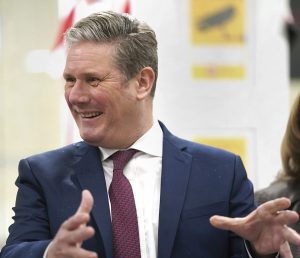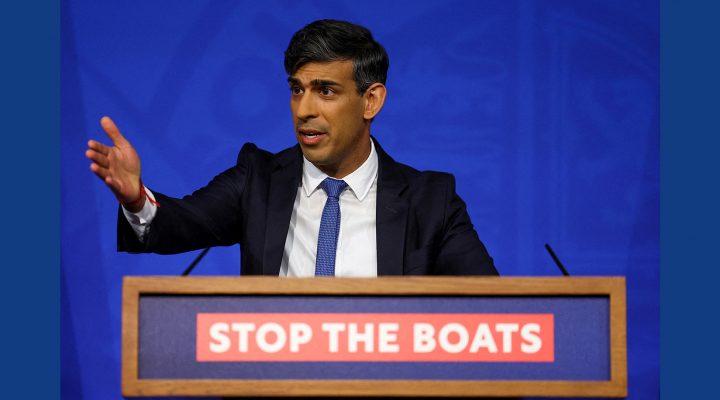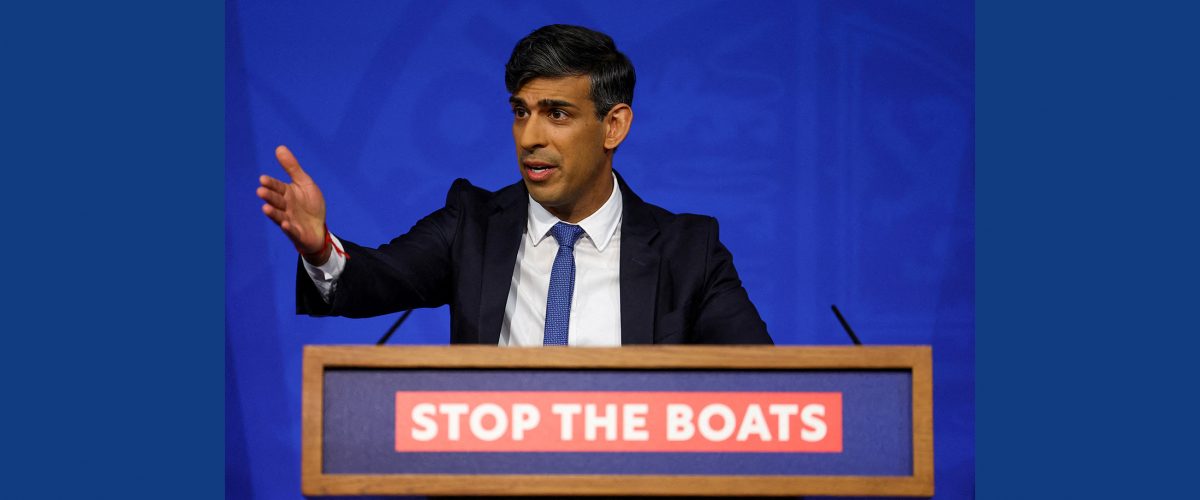Immigration policy is one of the major fallouts of the UK general elections held July 4, with the new British prime minister declaring a plan to ship migrants to Rwanda “dead and buried.”
The previous prime minister, Rishi Sunak, had worked out a deal with the African country to serve as host to migrants seeking safety in the UK.
Now Prime Minister Keir Starmer has said the Rwandan plan is no longer feasible.

Keir Starmer (Press Association via AP Images)
To him, the idea of sending migrants to Rwanda from the UK would not have served its stated purpose: “It has never acted as a deterrent. Almost the opposite, because everyone has worked out, particularly the gangs that run this, that the chance of ever going to Rwanda was so slim, less than 1%, that it was never a deterrent. The chances were of not going and not being processed and staying here, therefore, in paid for accommodation for a very, very long time. It’s had the complete opposite effect. And I’m not prepared to continue with gimmicks that don’t act as a deterrent.”
Now observers wonder what becomes of the money paid by the British government to Rwanda for the purpose of receiving migrants. According to the BBC, even with the migration scheme yet to take off, Sunak government had paid Rwanda’s government headed by Paul Kagame £240 million by the end of 2023.
The plan to send migrants to Rwanda did not start with Sunak’s administration but during the administration of his fellow party member, Boris Johnson, who was succeeded by another member of the Conservative Party, Liz Truss, before Sunak came on board. According to the plan, called “Migration and Economic Development Partnership,” anyone who entered the country illegally after Jan. 1, 2022, from a safe country such as France would be moved to Rwanda.
The plan was criticized by human rights activists as inhumane, but Johnson said it was meant to deter smugglers from turning the English Channel — a migration route to the UK — into a “watery graveyard.”
According to the Migration Observatory at the University of Oxford, “While reports of people attempting to enter the UK by crossing the Channel go back over 50 years, significant numbers did not begin to be detected until late 2018.”
Citing Home Office figures, the article states that 29,437 people reached the UK in 2023 after crossing the English Channel in small boats. “This compares with 45,774 in 2022. In the first half of 2024, 12,646 small boat arrivals were detected, up 16% on the first half of 2023.”
“While reports of people attempting to enter the UK by crossing the Channel go back over 50 years, significant numbers did not begin to be detected until late 2018.”
It further reveals that “a small number of nationalities make up a large share of people crossing the Channel in small boats,” as “from 2018 to 31 March 2024, two-thirds of total arrivals (79,149) had one of five nationalities: Iranian (18%), Afghan (15%), Iraqi (13%), Albanian (12%) … or Syrian (8%).”
Speaking on the migration issue as prime minister, Johnson said: “Our compassion may be infinite but our capacity to help people is not. We can’t ask the British taxpayer to write a blank check to cover the costs of anyone who might want to come and live here.”
Starmer, at the time the Labor leader, slammed the idea as “unworkable” and extortionist, saying it was an attempt to distract from Johnson’s “partygate” scandal. At the time, Johnson was facing public backlash after it was revealed he and some members of his government breached COVID-19 social distancing rules mandated by the government during the pandemic by attending parties.
With the payment to Rwanda, plans were under way, after initial setbacks by a UK Supreme Court ruling that declared the migration scheme unlawful, to begin transferring migrants to the East African country. Some British officials such as Suella Braverman, former interior minister, visited Rwanda to meet with government officials and assess infrastructure being put in place to accommodate migrants.
But then the UK general elections were held and Starmer triumphed over Sunak.
At this time, according to the International Rescue Committee, no migrants had been sent to Rwanda. However, a BBC report in June showed four people were transferred to Rwanda from a remote UK territory — Diego Garcia, an island in the Indian Ocean — by UK authorities under a different migration arrangement. The report quotes a Rwandan official as saying no money was given to Rwanda to take in and house the migrants from Diego Garcia, and the “only link” with the UK-Rwanda asylum deal was that the two countries were “very strong partners.”

Alain Mukuralinda
Responding to the new UK government’s position on the migration scheme, Alain Mukuralinda, Rwanda’s deputy government spokesperson, in a report published by Africanews, said the Rwandan government is not under obligation to refund the money it received.
“This was not a loan given to Rwanda; this was money sent to Rwanda to carry out specific actions,” he said. “These actions have been carried out. There is no reason why these funds should be returned.”
Nor has the British government requested a refund or even said the treaty is terminated, he added. “If the UK government has decided that the treaty is terminated and can no longer be implemented, then Rwanda takes notice of the decision and complies with it.”
Problem Masau, a Zimbabwean journalist, told BNG he believes the Rwandan decision expressed by Mukuralinda is justified: “The deal to send asylum seekers to Rwanda was put on paper and there are agreements which were signed. The fact that Sunak’s party lost power and was replaced by Starmer is not Rwanda’s problem. Kagame’s government in my opinion should not refund the money because it is Britain which did not meet its end of the bargain.”
He added: “The deal was not proper from the onset. Britain should accommodate asylum seekers into their country because they have resources they (benefited) for centuries (from) Africa.”
In the U.S., one veteran immigration advocate shares the view that the Conservative Party plan was disastrous from the start.
“The plan to deport people from the UK to Rwanda was atrocious. People are not commodities to be shipped around and sold,” said Lynn Tramonte, president of Anacaona and director of the Ohio Immigrant Alliance. “Migration is a basic act of humanity. It’s as old as time and as basic as breathing.
“Countries that are receiving migrants need to understand why people are coming there and create safe migration pathways. Interference by wealthy and colonizing countries created the conditions that force people to migrate. If you want to reduce the pressures that cause people to leave home, you should stop interfering in other lands’ politics and taking their natural resources for your profit.”
Related articles:
‘Stop the Boats’ bill passes UK Parliament but plan to ship migrants to Rwanda ruled illegal
On migrant crisis, the U.S. and UK governments share a controversial tactic in common


